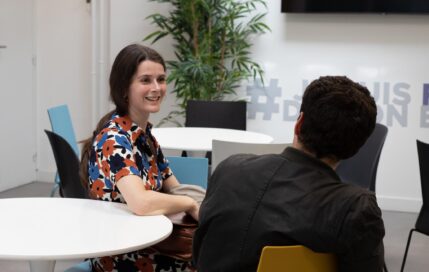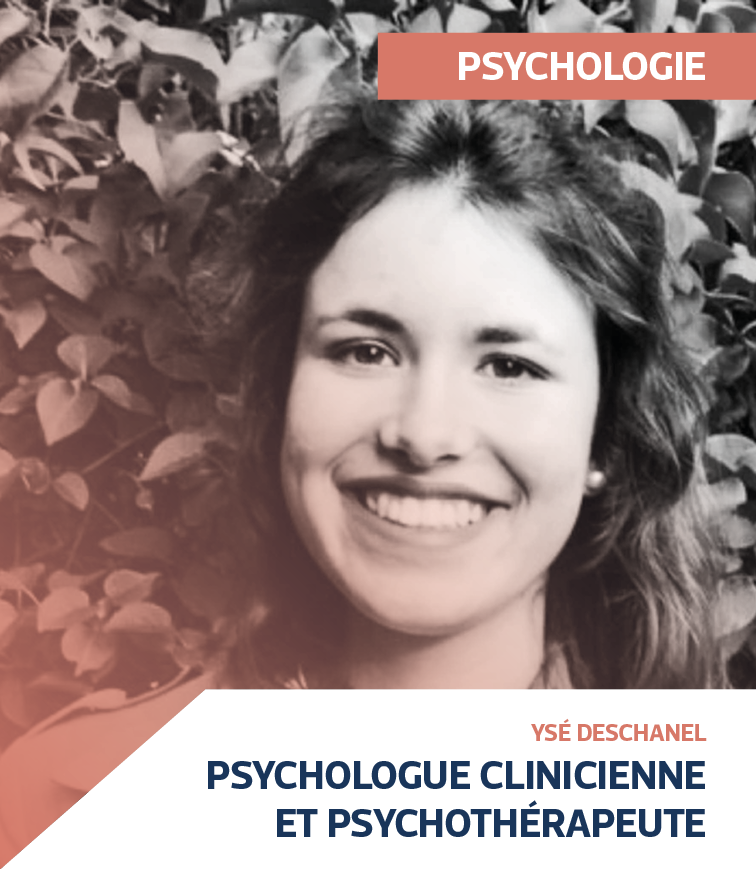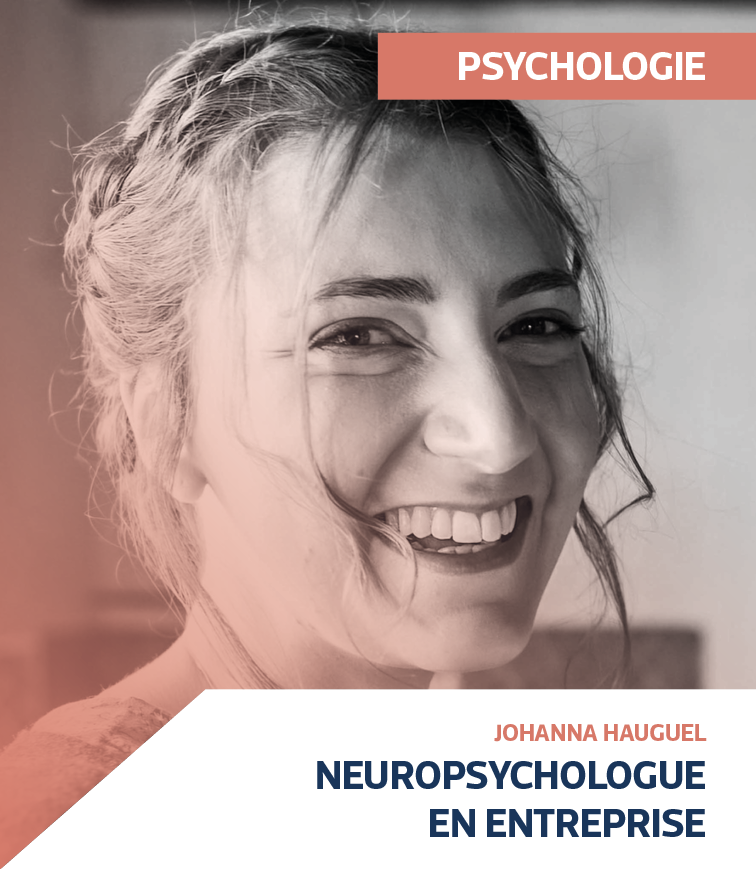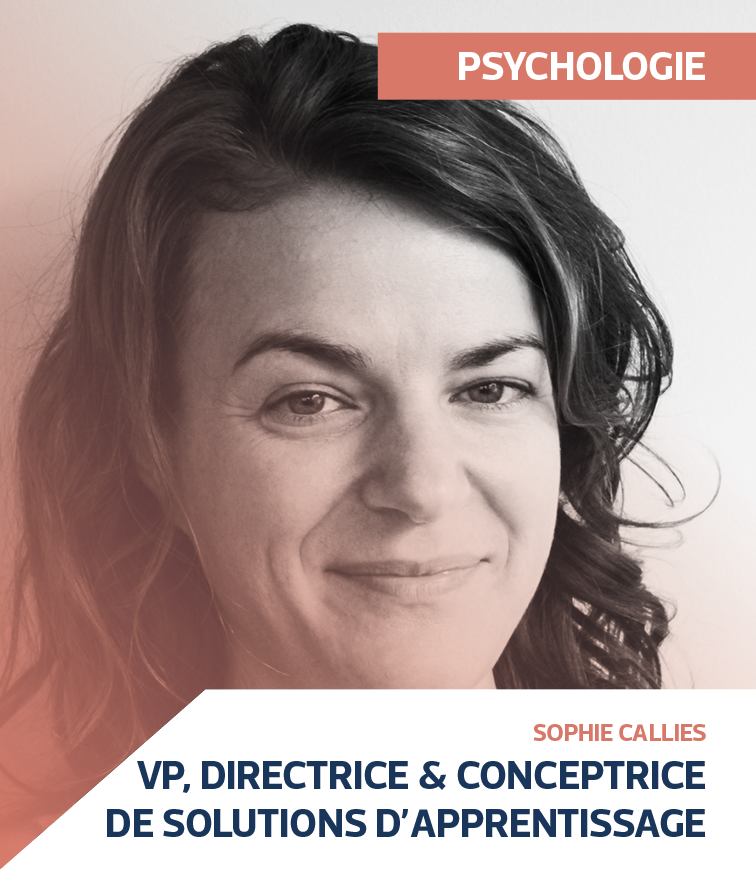- Licence de Philosophie
- Licence de Psychologie
Places en Psycho


Le Master RH, et après ?
Licence de Psychologie
Formuler une hypothèse scientifique, la tester, évaluer les résultats et savoir les communiquer
Une formation pour acquérir l’ensemble des bases de la psychologie, pour être capable de soulever les questions pertinentes et de voir les enjeux philosophiques.
- Pour découvrir toutes les disciplines de la Psychologie
- Pour avoir une approche intégrative
- Pour explorer par les stages les différents domaines de la psychologie
- Pour clarifier le langage grâce à la Philosophie, interroger nos croyances et expertiser la valeur des choses
- Pour découvrir toutes les dimensions de la personne humaine.
- Pour apprendre à exercer des responsabilités.
- Acquérir la rigueur scientifique : cours de méthodologie, participation active à des colloques (sur l’IA, sur les nudges, sur les questions autour de la santé, etc.), rédaction d’un Travail d’Étude et de Recherche (TER), utilisation des statistiques et des techniques d’enquête.
- Savoir réfléchir à partir de cas concrets
- Avoir le sens d’une relation d’accompagnement ajustée : écouter, bien se positionner, rendre le sujet acteur, avoir un comportement éthique
- Savoir relire son expérience de stage : les étudiants sont régulièrement accompagnés à partir de la troisième année par une psychologue clinicienne pour acquérir le sens clinique. C’est aussi une manière d’expérimenter la supervision.
- Savoir partager une conviction : sessions de prise de parole en public, d’art du débat et d’art oratoire.
Au quotidien, les étudiants peuvent solliciter en plus de leurs professeurs :
- Leur responsable d’année
- Les assistants pédagogiques
- Le responsable des stages
- Le psychologue de l’orientation
- Le responsable de la vie universitaire
- Le responsable de la bibliothèque et des ressources numériques
Travaux de groupes, cours de méthodologie, tutorat, entraînements réguliers aux examens sont organisés par l’IPC.
- Travaux en équipe
- Exercices de méthodologie : savoir construire un raisonnement, apprendre à disserter et à expliquer un texte
- Améliorer son expression écrite avec le certificat Voltaire
- Un contrôle continu soutenu avec des devoirs sur tables, des oraux et des travaux d’études et de recherche
- Un tutorat adapté
- Se former à une grande variété de disciplines : outre la psychologie, la licence comprend des cours de philosophie, d’éthique, d’épistémologie, de sociologie, de littérature, d’anglais, de statistiques, etc.
- Être capable d’utiliser en psychologie les ressources d’un autre champ disciplinaire : principalement la Philosophie
Après l’obtention d’une Licence de Psychologie, les étudiants peuvent poursuivre leurs études en master de Psychologie :
- Masters de psychologie clinique
- Master de psychologie cognitive
- Master de psychologie du développement
- Master de neuropsychologie
- Master de psychologie du travail
Ils peuvent également se diriger vers des :
- Master de Ressources Humaines
- Écoles de Commerce PGE
- Écoles de Communication
- Masters en Sciences de l’Éducation, Humanitaire
Licence 1 - Année des introductions
Semestre 1
Introduction à la psychologie I
- Introduction à la psychologie cognitive I
- Introduction à la psychologie du développement
- Introduction à la psychologie clinique et à la psychopathologie
- Introduction à la psychologie sociale
Philosophie générale
- Penser et savoir
- La connaissance de la vie
- Histoire de la Philosophie
Introduction à l’épistémologie
- Épistémologie des sciences humaines et sociales
- Philosophie des sciences
Culture générale
- Introduction à la sociologie
- Littérature
- Histoire de la psychologie
Compétences transversales et linguistiques
- LVE – Anglais
- Méthodologie du travail universitaire
- Introduction au PIX
Semestre 2
Introduction à la psychologie II
- Introduction à la psychologie cognitive II
- Introduction à la neurobiologie
- Sémiologie des troubles mentaux
- Communication et influences
Psychologie du développement
- Psychologie du fonctionnement socio-cognitif
- Introduction à la psychanalyse
Philosophie générale II
- La question du sens
- L’Éthique à Nicomaque
- Hasard et nécessité des sciences
Culture Générale II
- Science de l’éducation
- Histoire de l’art
Compétences transversales et linguistiques
- LVE – Anglais
- Méthodologie du travail universitaire
- Introduction aux statistiques en psychologie
- Littérature
Licence 2 - année des consolidations
Semestre 3
Approches développementales
- Théories de la psychanalyse
- Aspects bio-psycho-sociaux de l’adolescence
Approches clinique et neurobiologique
- Neurobiologie des comportements fondamentaux
- Évolution du fonctionnement psycho-affectif et psychopathologique
Approches sociale et cognitive
- Approche cognitive de l’apprentissage et de la mémoire
- Opinions, croyances et relations intergroupes
Philosophie et sociologie I
- Épistémologie de la psychologie
- Sociologie du travail
- Praxis et Habitus
Compétences transversales, linguistiques et préprofessionnelles I
- LVE – Anglais
- Techniques de la communication
- Statistiques inférentielles appliquées
Semestre 4
Approches cliniques
- Les troubles mentaux et leur prise en charge
- Psychologie clinique de la santé
- Clinique et société
Approches sociale et cognitive
- Méthodes en psychologie sociale
- Effets du stress sur le fonctionnement cognitif
Approches neurobiologique et différentielle
- Les fonctions sensorielles et la motricité
- Approche différentielle de la personnalité
Philosophie et sociologie II
- Philosophie pratique
- Sociologie des religions
- Histoire de la philosophie moderne
Compétences transversales, linguistiques et préprofessionnelles II
- LVE – Anglais
- Initiation à la Recherche
- Module préprofessionnel : rédaction de CV et recherche de stage
- Pratique du discours oral
- Statistiques inférentielles et informatique
Licence 3 - année des spécialisations
Semestre 5
Enseignements d’approfondissement en psychologie I
- Psychologie cognitive : Perception et attention
- Psychologie du développement – les origines de la socialisation
- L’entretien psychologique
Introductions à la psychologie du travail et à la psychologie ergonomique
- Psychologie du travail
- Ergonomie cognitive : approche systématique de l’activité
Neurobiologie et neuropsychologie
- Adaptation et régulation des conduites
- Neuropsychopathologie cognitive
Initiation à la recherche I
- Méthodologie de la recherche en Psychologie
- Séminaires en Psychologie I
- TER en Psychologie I
Enseignements d’ouverture
- Philosophie des savoirs et des pratiques
- Options (en vue de la poursuite d’études) : Sociologie, Management, Psychanalyse de l’enfant et de l’adolescent
Compétences transversales, linguistiques et préprofessionnelles III
- LVE : Oral and written communication techniques in scientific english for psychologists
- Projet professionnel et parcours de formation
- Séminaires avec des psychologues praticiens
- Analyse de variance
Semestre 6
Enseignements d’approfondissement en Psychologie II
- Criminologie
- Approche psychologique des maladies somatiques
- Introduction aux psychothérapies brèves et résilience
Développement et lien social
- Développement socio-cognitif
- Lien social et situations limites
Neurobiologie, psychologie cognitive et critique de la mesure
- Neurobiologie des fonctions mentales supérieures
- Initiation aux pratiques neuropsychologiques
- Pathologie de la cognition et du vieillissement cognitif
Initiation à la recherche II
- TER en Psychologie II
- Séminaire en Psychologie II
- Théories et pratiques de la mesure en Psychologie
Enseignements d’ouverture
- Anthropologie philosophique
- Épistémologie de la biologie évolutive
- Options (en vue de la poursuite des études) : Ergonomie, Management, Séminaire Langage écrit et Méthodes d’analyse, Techniques psychanalytiques
Compétences transversales, linguistiques et préprofessionnelles IV
- LVE : Psychology of language and language learning
- Stage et supervision de stage








